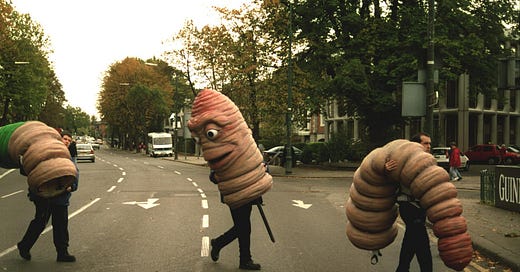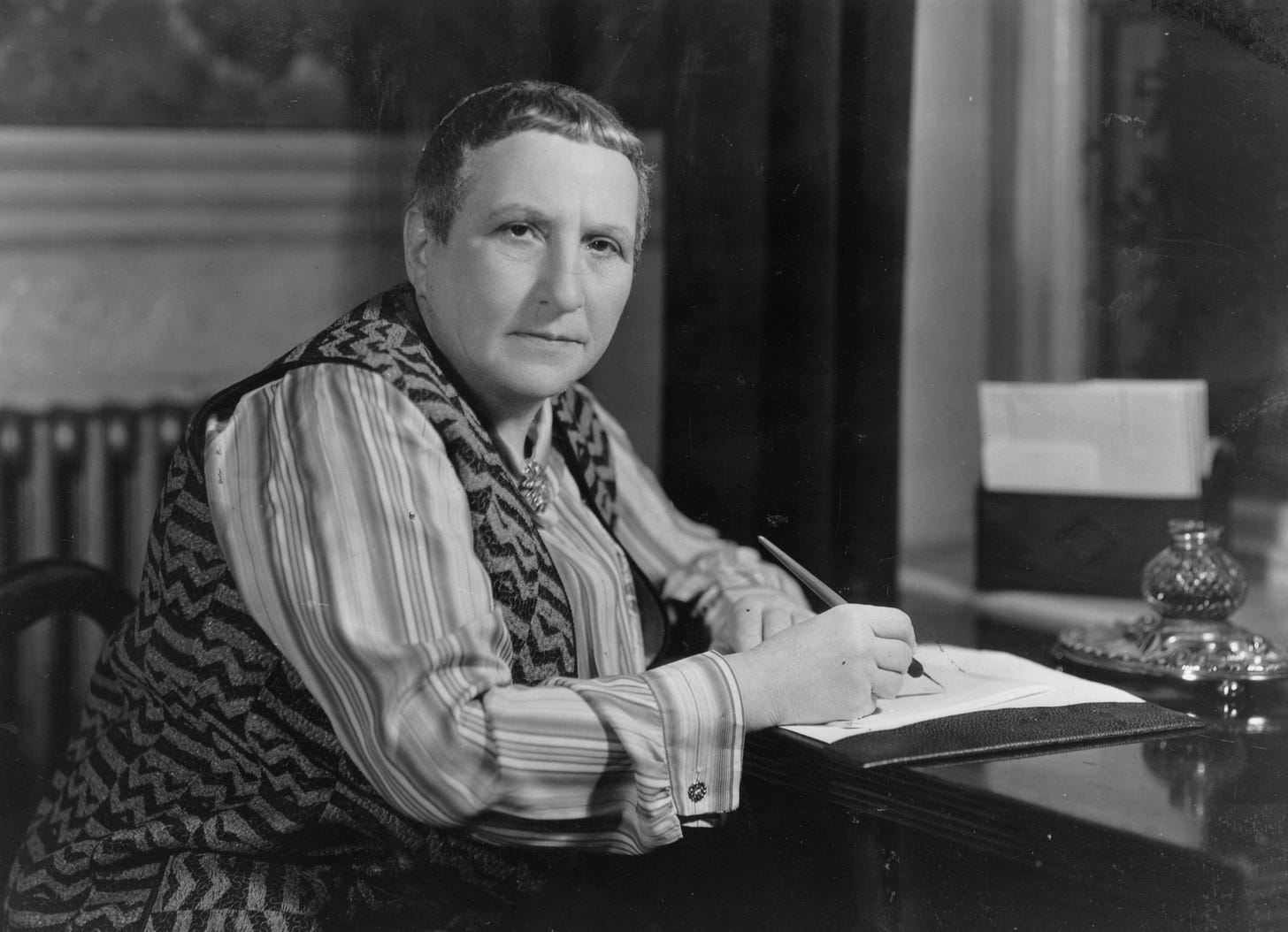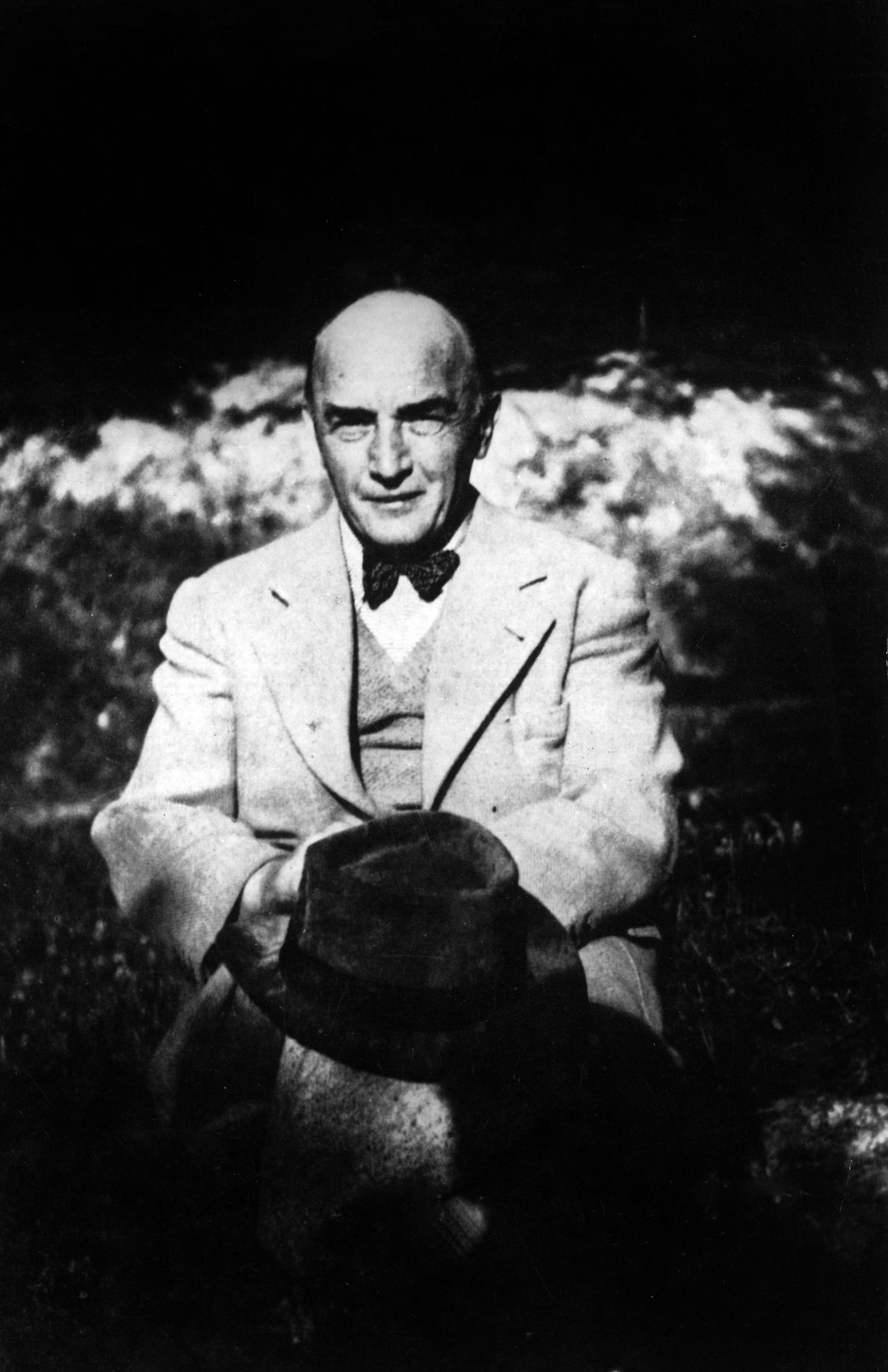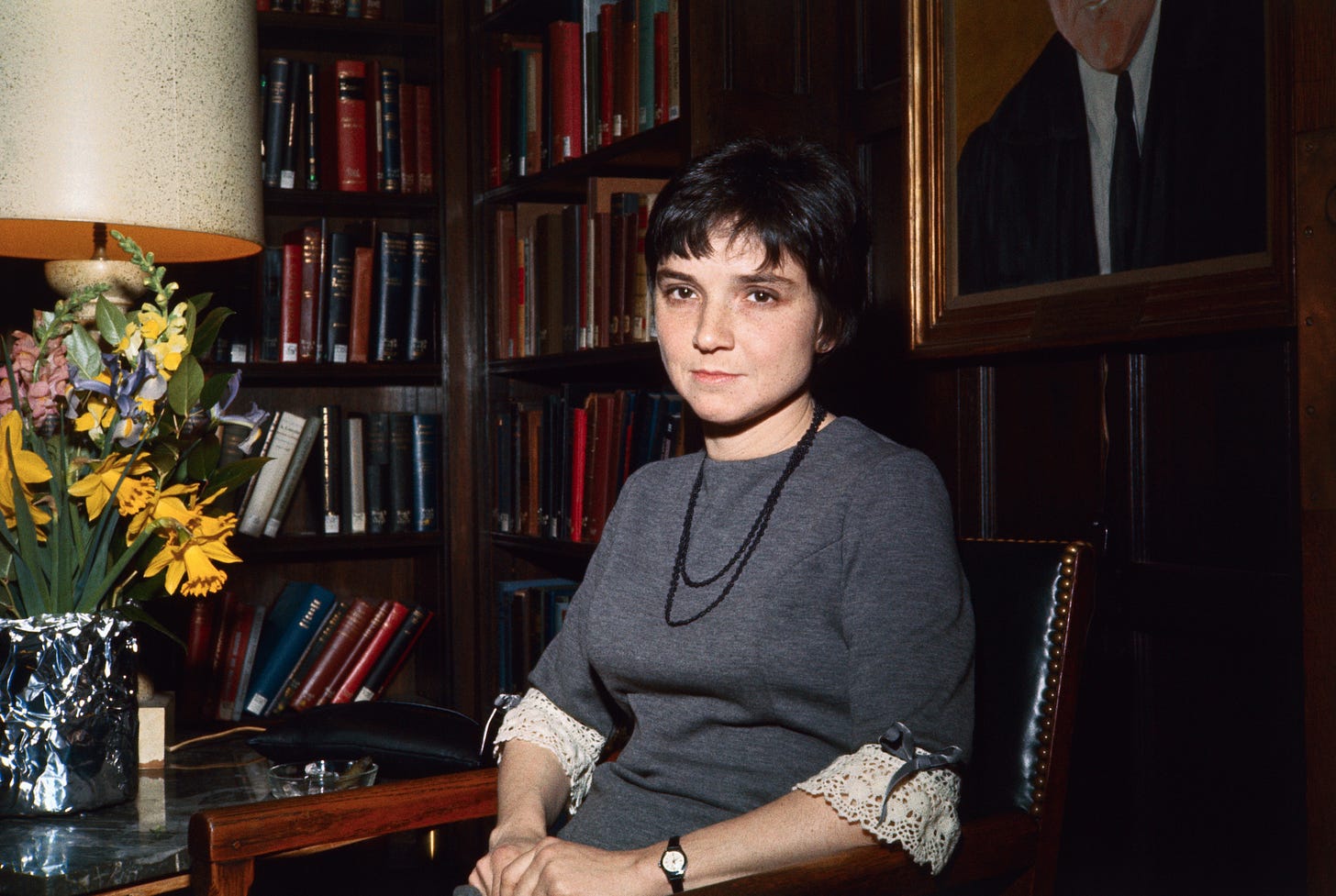Welcome to Worm School! This summer, I’m making a plan for finally finishing my overdue book project—and the advice I’m giving myself / the habits I’m adopting in my writing cave should, I hope, prove useful for anyone trying to make progress on an ambitious creative project. Thank you for joining me! Let’s get started.
Week One: Think Smaller
As I wrote in the intro post, our goal this summer is to keep wriggling through, regardless of whatever obstacles spring up in our paths.
This means: When you feel overwhelmed or dispirited by your work, or when your schedule gets impossibly crowded with competing obligations, you find a way to keep working on your thing, even if it’s only the tiniest, paltriest way.
In fact, our goal is the tiniest, paltriest progress. This prevents us from getting overwhelmed by our grand creative ambitions. And it creates momentum for more significant progress later.
So, whatever is threatening to derail you this summer, always strive to THINK SMALLER. This applies to logistical roadblocks and emotional ones! If you don’t have enough time for your project—the most common logistical problem—I challenge you to find some amount of time, any amount. We’ll get more into time-management strategies later in the series. For now, think smaller. Can you find a half hour a day? Remember Gertrude Stein:
If you write a half hour a day it makes a lot of writing year by year.
If, on the other hand, your problem is overwhelm, dread, lack of confidence, lack of willpower, or another very common psychic-emotional roadblock, for worm’s sake, think smaller. I have to remind myself of this all the time. Your goal is not to be a creative genius—your goal is to write one good paragraph, produce one minute of quality film or video, make one corner of your painting feel alive.
My newsletter friend
recently wrote a great piece about the “one extremely compelling idea” that allowed her to get over her harsh inner disciplinarian, and it was exactly this strategy:I just had to do a single thing each day, no matter how small. If it was a writing project, I could write one sentence, I could work on my draft for one minute, I could revise one paragraph. As long as I did something rather than nothing, I was making progress.
Around the time I read this, I happened to be skimming the Diaries of the Austrian modernist writer Robert Musil—who, in 1930, gave himself this very same advice:
I have the feeling that I have a swarm, a cloud of possibilities in my head, and resemble a man who wants to tie up a bale that is bigger than he is. So I must make the task easier for myself and divide it up! One at a time. This is the case in all things.
Musil is right: Any task can be divided into smaller tasks. If the one good paragraph is eluding you (for instance), try to write one good sentence. If that is eluding you—it eludes me many days—try to write one good description, one good phrase. That is a solid day’s work! I’m not joking. Remember the painter Gwen John:
I do nothing but paint—but you know how slowly that gets on—a week is nothing, one thinks one can do so much in a week—if one can do a square inch that pleases one—one ought to be happy—for after all to do in a year something beautiful—“a joy for ever”—would be splendid!
Also remember Adrienne Rich: “Nothing can be done / but by inches.” It’s really true!
(Side note: If your problem is that you’re not sure what your creative project is or should be—starting now, figuring that out is your project. We’ll talk more about this the week after next in week four.)
One final, very important point: Sometimes a part of thinking smaller is thinking weirder. This is its other great advantage! Here’s an exercise you can try, to see what I mean:







